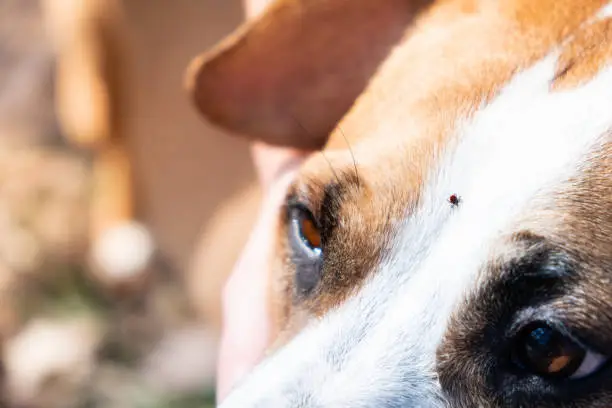When Can Kittens Leave Their Mom? Here’s What a Veterinarian Recommends

The question of when kittens can leave their mom is one that many new pet owners face. While it can be tempting to bring home a cute kitten as soon as possible, veterinarians strongly recommend waiting until the kittens are fully weaned and have reached certain developmental milestones. Separating kittens from their mother too early can have a significant impact on their health, behavior, and socialization. This article will delve into when kittens can safely leave their mom, according to veterinary experts, and why it’s important to wait for the right time.
The Critical Role of the Mother Cat:
The mother cat, or queen, plays an essential role in her kittens’ early life. She not only provides nourishment through her milk but also teaches her kittens important social and survival skills. From birth to weaning, the bond between the mother and her kittens is crucial for their development. Removing a kitten from its mother too soon can disrupt these natural processes, which may lead to health issues or behavioral problems later in life.
Why the Right Age Matters:
The age at which a kitten leaves its mother can affect everything from its immune system to its social skills. Here’s why timing matters:
- Immune System Development: Kittens receive vital antibodies from their mother’s milk, particularly during the first 24-48 hours through colostrum. These antibodies help protect the kitten from diseases while their own immune system is still developing. Weaning too early deprives them of this critical immunity.
- Socialization: The mother cat and littermates teach each other how to interact, play, and express natural behaviors. These early lessons shape how the kitten will interact with other animals and humans throughout its life.
- Weaning Process: Weaning is a gradual process that allows the kitten’s digestive system to adapt to solid food. Early separation can lead to digestive issues and malnutrition if the kitten isn’t fully weaned.
When Can Kittens Leave Their Mom?
Veterinarians recommend that kittens should not be separated from their mother before 8 weeks of age. However, waiting until 12-14 weeks is even better for their social and emotional development. Here’s why:
- 0-4 Weeks Old (Neonatal Stage): During this stage, kittens are completely dependent on their mother for survival. They are blind, deaf, and unable to regulate their body temperature. The mother provides warmth, nourishment, and protection. Removing a kitten at this age can be life-threatening.
- 4-8 Weeks Old (Weaning Stage): Between 4-8 weeks, kittens begin to transition from nursing to eating solid food. This is also the time when they start exploring their environment and learning essential behaviors from their mother and siblings. While kittens are starting to become more independent, they still need the comfort and security of their mother during this critical developmental period.
- 8-12 Weeks Old (Socialization Stage): By 8 weeks, kittens are typically fully weaned and eating solid food. However, this period is also crucial for socialization. Kittens that remain with their mother and littermates during this time learn important skills, such as bite inhibition, litter box use, and how to interact with other cats. Separating them too early can result in behavioral issues, such as aggression, fear, or difficulty adjusting to new environments.
- 12-14 Weeks Old (Ideal Age for Adoption): Many veterinarians recommend waiting until kittens are at least 12 weeks old before they are adopted into new homes. By this age, kittens are more emotionally stable, have learned appropriate behaviors from their mother, and are ready to bond with their new family. Kittens adopted at this age are often more confident and better equipped to handle the transition to a new environment.
Health Considerations for Kittens:
Kittens need to reach certain health milestones before they can safely leave their mother. These include:
- Vaccinations: Kittens typically receive their first set of vaccinations at 6-8 weeks of age, followed by boosters at 10-12 weeks. These vaccinations protect against common diseases like feline distemper, calicivirus, and rhinotracheitis. It’s important that kittens are vaccinated before they are exposed to new environments or other animals.
- Deworming: Most kittens are born with intestinal parasites that they contract from their mother. Regular deworming treatments, starting at 2-3 weeks of age, are necessary to ensure the kitten is healthy by the time it leaves its mother.
- Weight and Growth: Healthy kittens should be gaining weight steadily. A kitten that is too small or underweight may need more time with its mother before it is ready to leave. Regular veterinary check-ups during the early weeks will ensure the kitten is growing appropriately.
Behavioral Considerations:
The time spent with the mother and littermates also impacts the kitten’s behavior and temperament. Here are a few key behavioral considerations:
- Bite Inhibition: Kittens learn bite inhibition through play with their littermates. This teaches them how to control the force of their bite, which is essential for interacting with humans and other animals. Kittens separated too early may develop biting problems because they haven’t learned this important skill.
- Litter Box Training: Kittens naturally begin to use a litter box by watching their mother. Kittens that stay with their mom longer are more likely to be fully litter-trained by the time they are adopted.
- Socialization with Other Cats: Interactions with the mother and siblings help kittens learn how to communicate and behave around other cats. This is critical for their ability to get along with other pets in the household later in life.
The Risks of Early Separation:
Separating kittens from their mother before they are ready can lead to several issues:
- Health Problems: Kittens separated too early are more vulnerable to infections and illnesses due to an underdeveloped immune system. They may also suffer from digestive issues if they are weaned too soon.
- Behavioral Issues: Kittens removed from their mother prematurely may have difficulty adjusting to new environments. They may exhibit behavioral problems, such as aggression, anxiety, or inappropriate elimination.
- Malnutrition: If a kitten is weaned before it is ready, it may not receive the proper nutrition needed for healthy growth. This can lead to stunted growth and other developmental problems.
Adopting or Rehoming Kittens:
If you are adopting or rehoming kittens, here are some tips to ensure the process goes smoothly:
- Wait Until the Kitten is Ready: As tempting as it may be to bring home a kitten as soon as possible, it’s important to wait until the kitten has reached at least 8-12 weeks of age. This will ensure the kitten is healthy, well-socialized, and ready for its new home.
- Provide a Smooth Transition: Moving to a new home can be stressful for kittens. Provide a comfortable and secure space for the kitten to explore at its own pace. Make sure to continue feeding the kitten a high-quality kitten food that supports its growth and development.
- Continue Socialization: Continue to expose the kitten to new experiences, people, and other animals in a controlled and positive manner. This will help the kitten grow into a well-adjusted and confident adult cat.
Special Circumstances:
There are some special circumstances in which kittens may need to be separated from their mother earlier than usual. These include:
- Orphaned Kittens: In cases where the mother is unavailable, such as in orphaned kittens, bottle-feeding and extra care will be necessary until the kittens are old enough to be weaned.
- Maternal Rejection: Sometimes a mother cat may reject one or more of her kittens. In these cases, the rejected kittens will need to be fed kitten formula and monitored closely until they are ready for solid food.
Conclusion:
Knowing when kittens can safely leave their mother is crucial for their health, behavior, and overall well-being. While 8 weeks is often seen as the minimum age, waiting until 12-14 weeks is ideal for their social, emotional, and physical development. Following veterinary recommendations ensures that kittens are fully prepared for life in their new homes. By giving them the time they need with their mother and siblings, you help set them up for a happy, healthy life.




